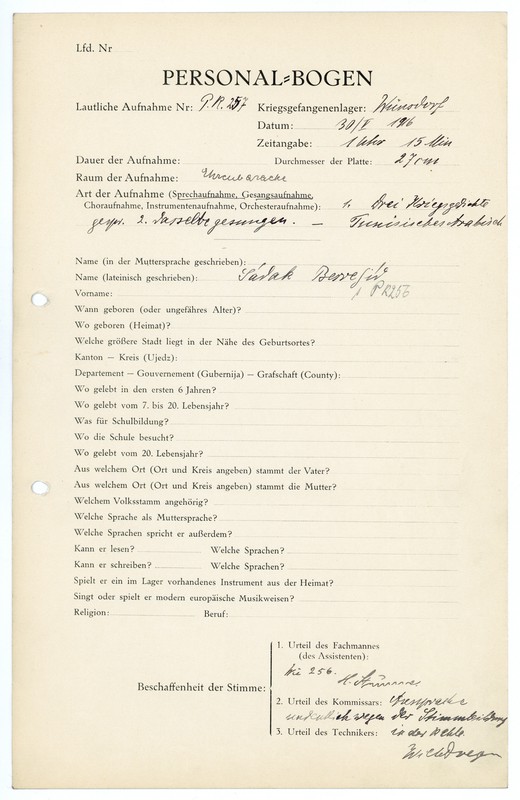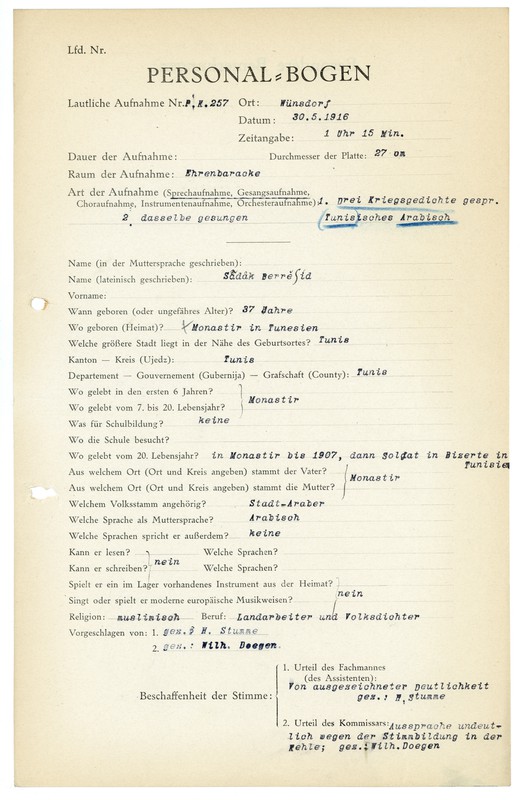Sadok Ben Rachid Haj Youssef – “War Poems” Example from the Phonographic Commission Collection
Sadok Ben Rachid Haj Youssef from Monastir in Tunisia was a “farm worker and popular poet” by profession. Born in 1889, he was 27 when in 1916 he made several sound recordings at the prisoner of war camp in Wünsdorf near Zossen (the “Halfmoon Camp”). In all probability he was a soldier in the North African forces that France recruited in Algeria, Tunisia and Morocco and deployed in major European battles such as the Marne and Ypres. The spoken words and songs recorded by Sadok Ben Rachid are part of the collection of the Phonographic Commission, which made 1,650 voice recordings in German prisoner of war camps between 1915 and 1918. His voice can be heard on seven surviving records in all. He recorded four-liners (PK 255), riddles (PK 256), three war poems (PK 257) and the Tale of the Chaste Woman (PK 265, PK 266, PK 267, PK 268), all in Arabic.
Sound Recording by Sadok Ben Rachid, PK 257
Sadok Ben Rachid spoke and sang three “war poems” in Arabic to the gramophone as a prisoner of war in the “Halfmoon Camp” on May 30, 1916. He tells his own story, how he was recruited by the French army in Tunisia during Ramadan 1914, was injured in Europe in a battle against the Germans, and was taken prisoner and interned in a prisoner of war camp. He complained about his medical treatment and his feeling of isolation in captivity. The poem ends with the words “Oh my God, help me!”
On the record marked PK 257 Sadok Ben Rachid recites the verses he may well have written himself and then sings them in the typical form of an Arabic lament. The recording ends, like all the others, with the sound of a whistle at the then concert pitch of 436 Hertz.
Further Material
Sadok Ben Rachid’s name, date and place of birth and other details are listed on the personal information form that the Phonographic Commission required to be kept for each recording. Whether these details are accurate has yet to be checked. These details were noted on the handwritten personal information form for his first recording (PK 256) but not, for example, on the handwritten form for PK 257, which instead refers to PK 256. The typewritten version that was probably not written until after the war contains all of these details. The three text versions that the members of the Phonographic Commission were supposed to compile for each recording – one in the language spoken, a phonetic transcription and a translation into German (or at least into Russian, English or French) are not to be found in the Sound Archives documents.
Object Biography and Bibliography
- May 30, 1916
- Sadok Ben Rachid recites and sings for a gramophone recording in the “Halfmoon Camp” in Wünsdorf, probably in the presence of Wilhelm Doegen and Hans Stumme. The recording was numbered PK 257.
- 1928
- Translation and publication of the recording by the Sound Department of the Prussian State Library: „Lautbibliothek. Phonetische Platten und Umschriften“, Nr. 45, Berlin, 1928 – Preußische Staatsbibliothek (Arabic and Berber dialects, edited by Hans Stumme). It includes an Arabic and phonetic transcription and a German translation with various notes. The brochure fails to mention that the speaker was a prisoner of war.
- 1999-2007
- The surviving shellac record is digitized and stored in the HU’s “Kabinette des Wissens” database.
- 2012
- Recording used in the book by Anette Hoffmann to go with the exhibition “Was Wir Sehen.” Cf. Britta Lange: “Was Wir Hören. Aus dem Berliner Lautarchiv,” in: Anette Hoffmann/Britta Lange/Regina Sarreiter: Was Wir Sehen. Bilder, Stimmen, Rauschen. Zur Kritik anthropometrischen Sammelns, Basel: Basler Afrika Bibliografien, 2012, pp. 61-78.
- 2013
- Recording discussed at the international symposium on “The World During the First World War – Perceptions, Experiences, and Consequences” in Hannover (cooperation by the Volkswagen Foundation, the Center for Modern Oriental Studies Berlin and the History Department of the University of Hannover Herrenhausen). Cf. Britta Lange: “History and Emotion. The Potentiality of Laments for Historiography,” in: Helmut Bley/Anorthe Kremers (Eds.): “The World during the First World War,” Essen: klartext, 2014, pp. 371-376.
- November 19, 2014
- Julia Tieke uses the recording and an interview with Britta Lange for a feature on Deutschlandradio Kultur:
“Das Deutsche Kaiserreich und der Dschihad” (The German Empire and the Jihad). - July 13, 2016
- Recordings used in the concert performance of the opera “Fidelio” conducted by Julien Salemkour in Rems.
- October 2016 to May 2017
- The recording can be heard on headphones in the exhibition “Deutscher Kolonialismus. Fragmente seiner Geschichte und Gegenwart” at the Deutsches Historisches Museum in Berlin. Cf. Irene Hilden: “Schellackplatte mit einem Tondokument des Kriegsgefangenen Sadak Berresid (sic), 1916,” in: Stiftung Deutsches Historisches Museum (Ed.): Deutscher Kolonialismus. Fragmente seiner Geschichte und Gegenwart, Darmstadt: Theiss, 2016, p. 197.
- February 2018 to November 2019
- After extensive research, Marie Guérin and Anne Kropotkine found the descendants of Sadok Ben Rachid, the Haj Youssef family. They informed the Lautarchiv of his real name and his correct date of birth. The archives would like to thank them wholeheartedly for this valuable information. In November 2019, they will publish a detailed radio play on Deutschland Funk Kultur : Kolonialsoldaten im Ersten Weltkrieg. In the footsteps of Sadok B
- April/March 2020
- A second radio work „Chanteuses“ was broadcast in March and April 2020 on RTBF and RTS. Co-Producer: Micro-sillons.
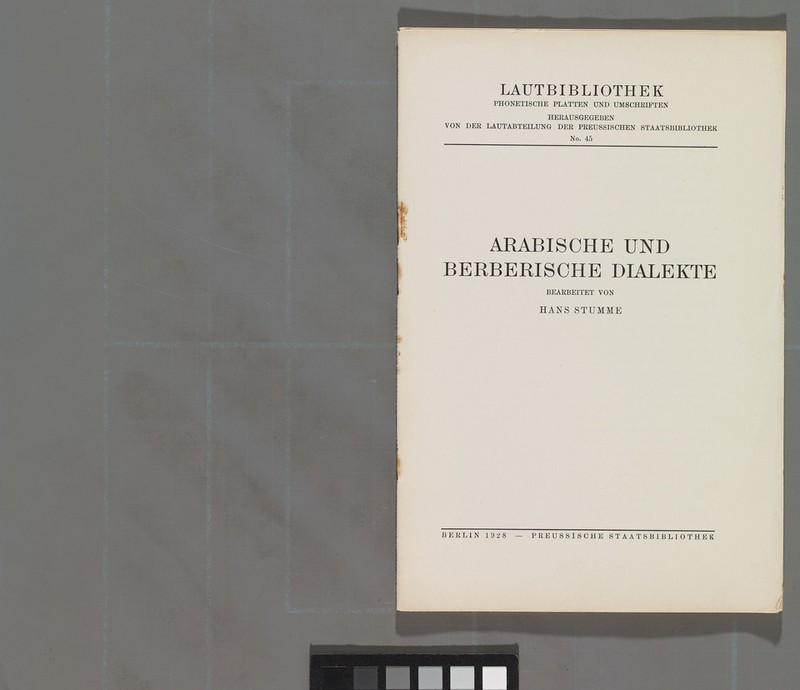
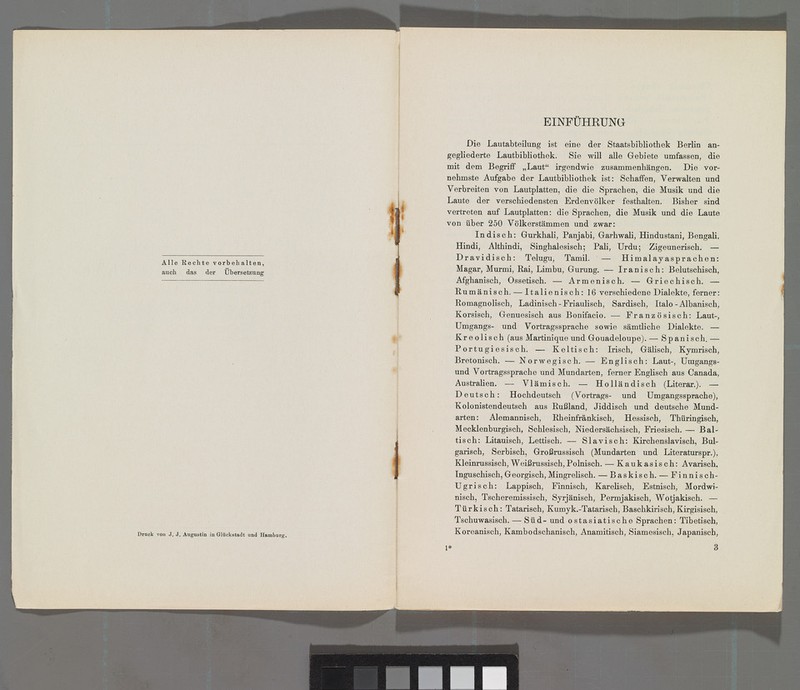
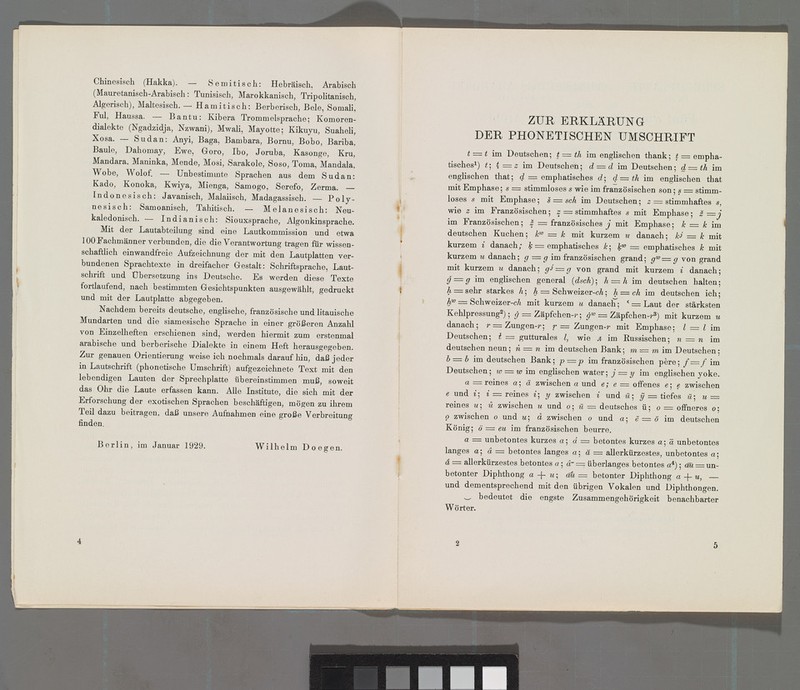
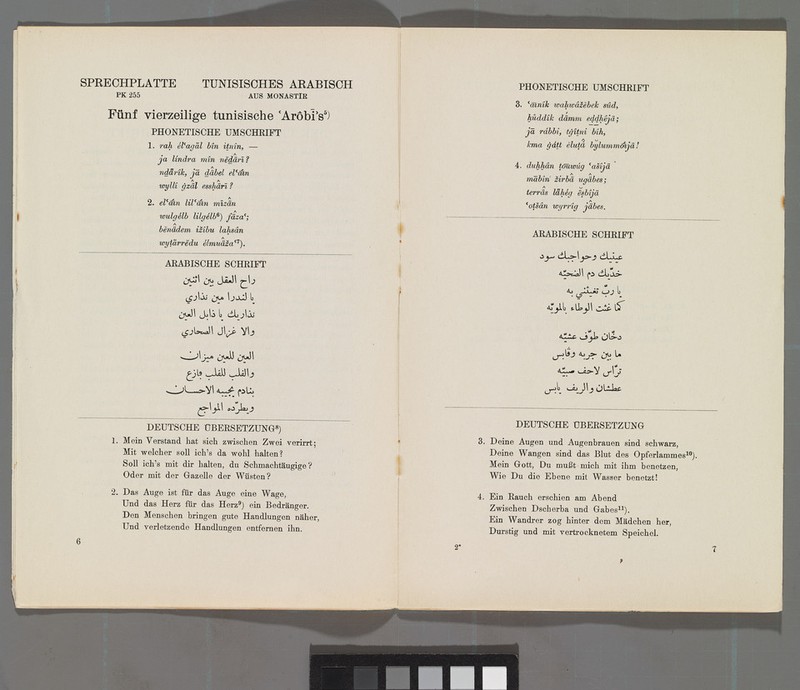
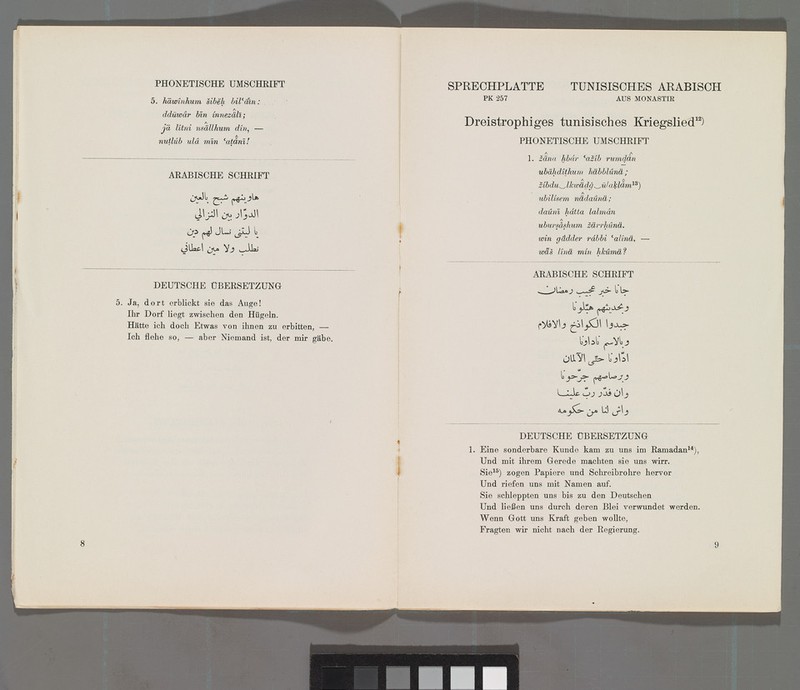
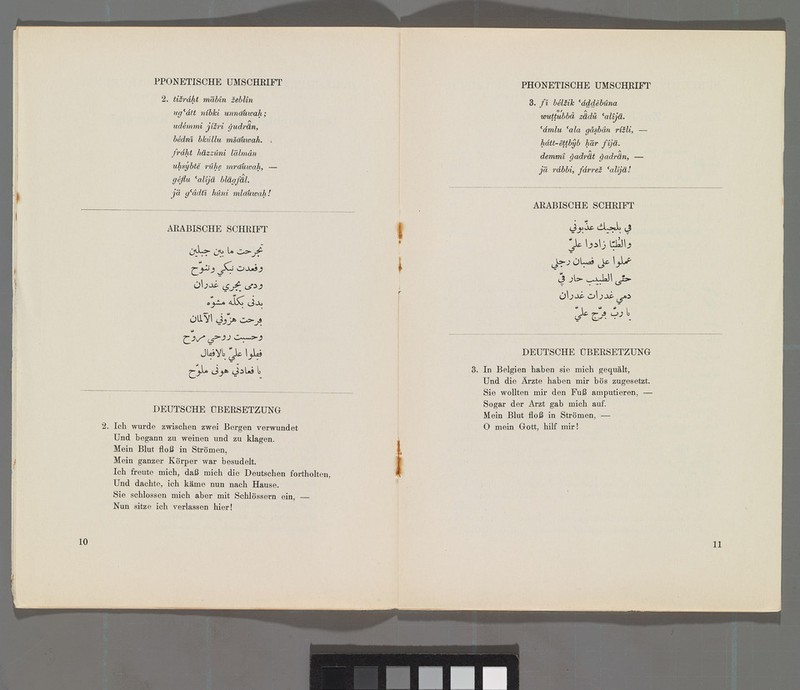
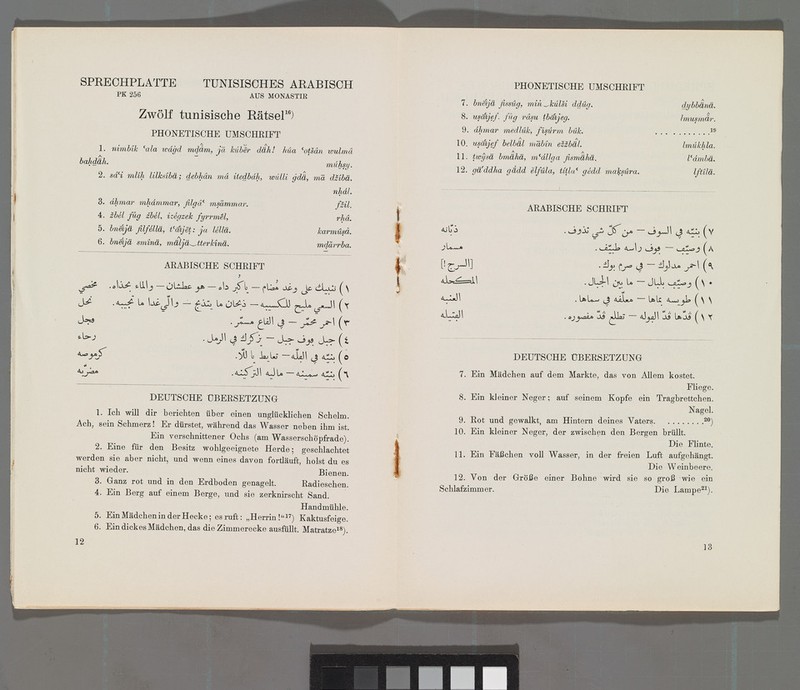
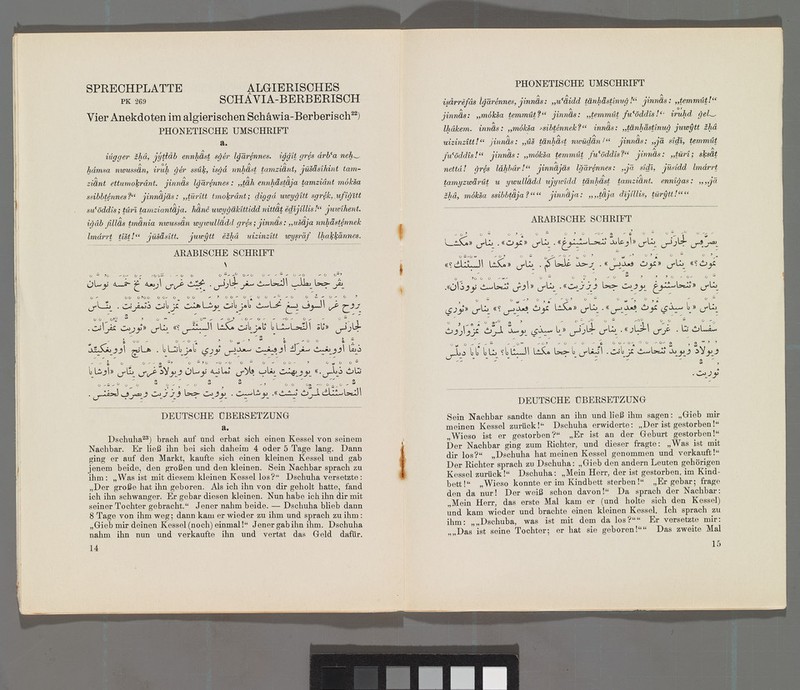
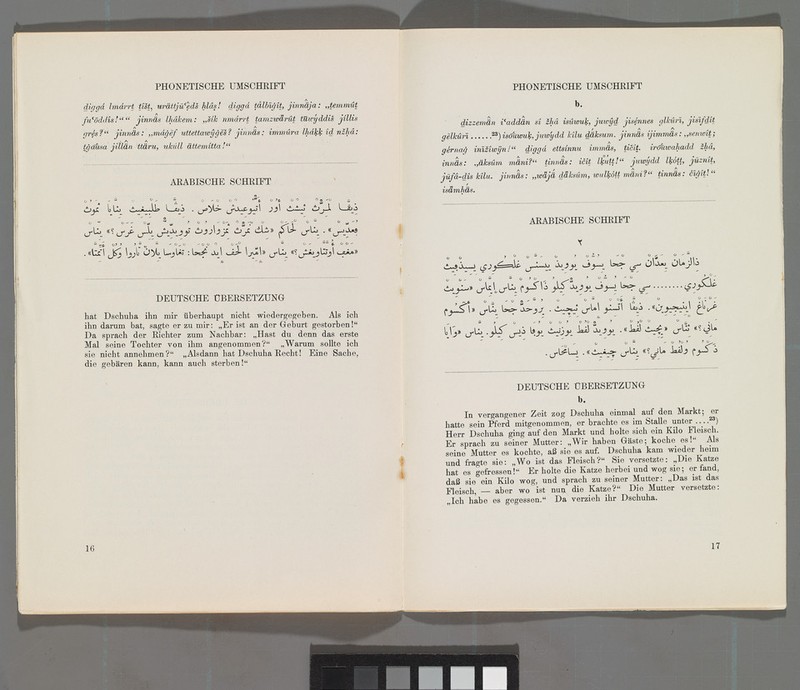
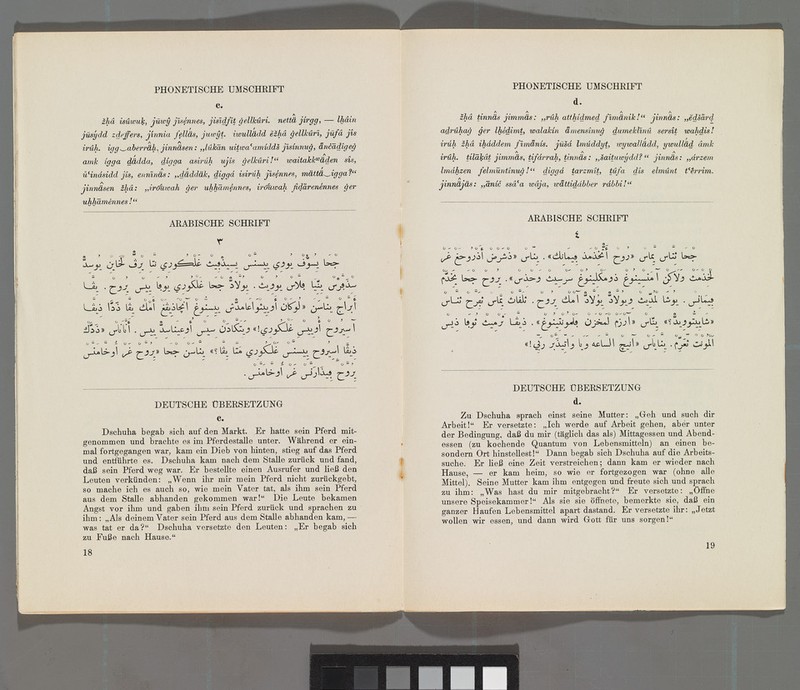
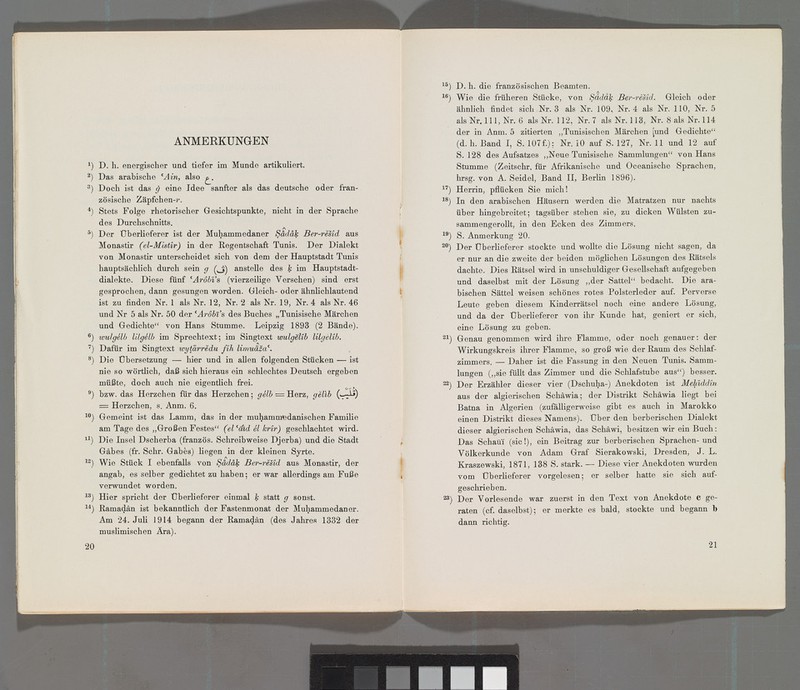
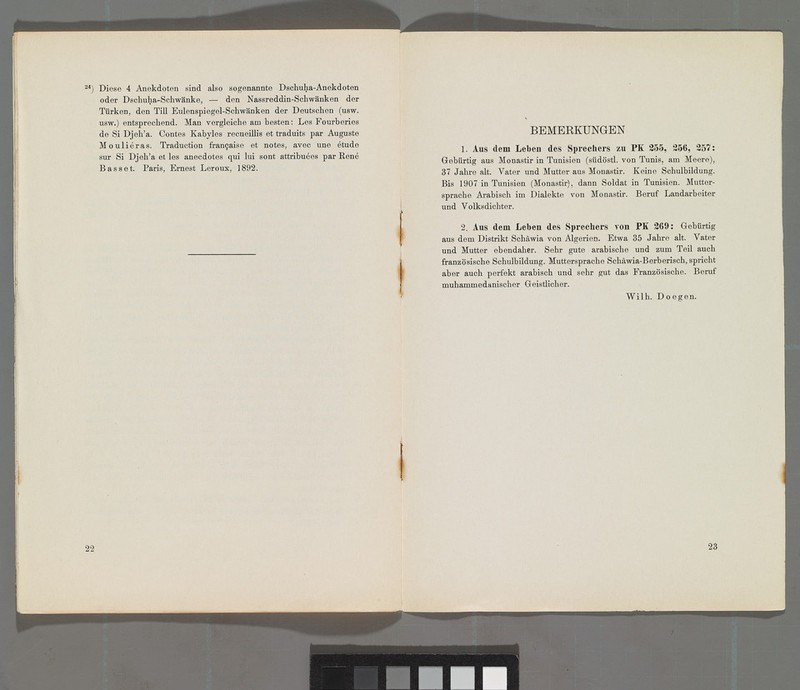
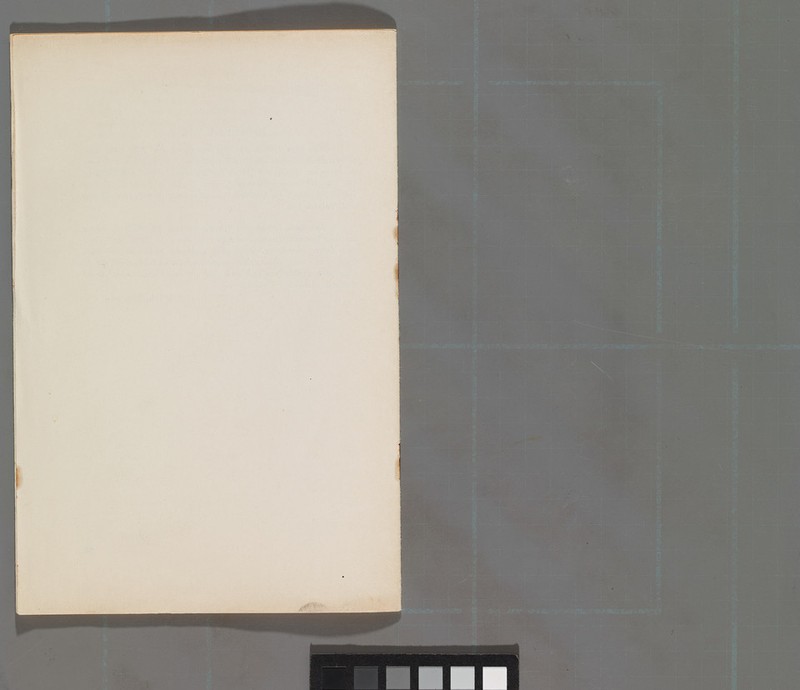
Arabischer Text, Phonetische Umschrift, Übersetzung
